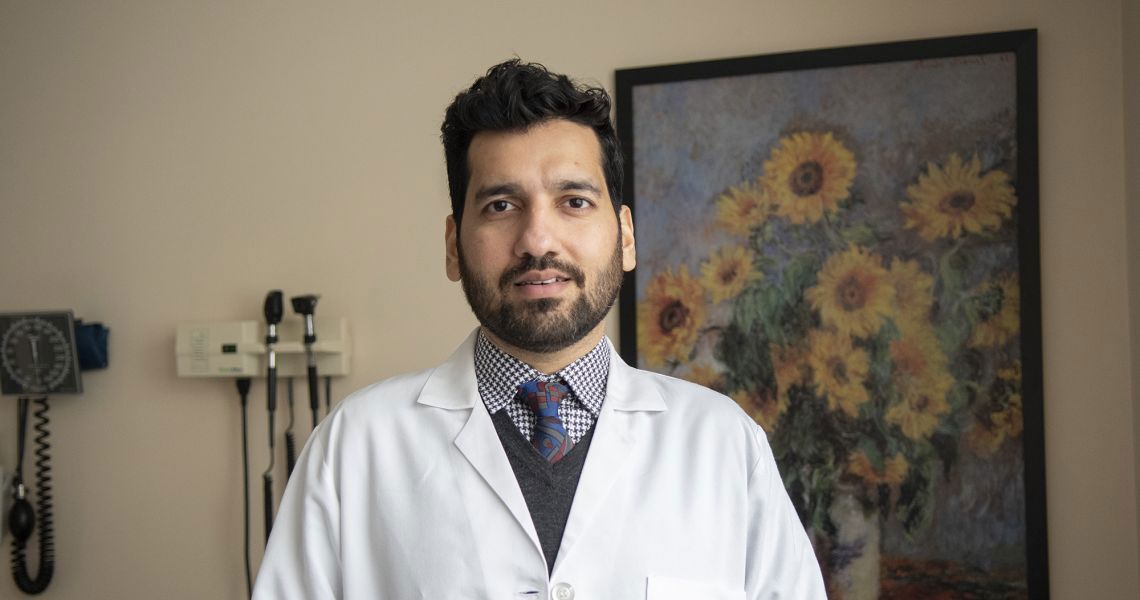Diabetes diagnoses have doubled over the past 20 years, according to the Centers for Disease Control and Prevention, and many people don’t even know they have the disease. With November as National Diabetes Awareness Month, now is the time for a check-up and a discussion with a physician about testing and treatment options. Here, Rohit Jain, MD, endocrinologist at the George Washington University (GW) Medical Faculty Associates (MFA), explains what to expect with symptoms and diagnoses and how to reduce your risk of developing diabetes.
Q. How common is diabetes?
Jain: In the U.S., 34.2 million adults have diabetes, and diabetes is the seventh leading cause of death in this country.
Q. What is the difference between Type 1 and Type 2 diabetes?
Jain: If you have diabetes, your body either doesn’t make enough insulin or can’t use the insulin it makes as well as it should. Type 1 is an autoimmune disorder where your body stops making insulin and you are insulin dependent right away. Type 2 diabetes is characterized by insulin resistance where you cannot use the insulin you make well enough and, if untreated, can eventually lead to being insulin dependent.
Q. What are the symptoms for diabetes?
Jain: It can be a silent disease; 1 in 5 people don’t know they have it. Classic symptoms include excess thirst, excess urination, and, in some, unexpected weight loss can be seen and is a sign that you need immediate medical care.
Q. How do you diagnose diabetes?
Jain: We diagnose diabetes based on blood tests that measure your glucose (sugar) value. Another marker that is usually tested is called hemoglobin A1c (HbA1c), [which shows your average blood sugar level over 2-3 months].
Q. What does treatment typically involve?
Jain: Treatment can include counseling, making appropriate changes to your lifestyle, and taking medications, which can be oral pills or injections depending on your individual condition. People with diabetes have their own individual treatment plan that they design after consultation with their medical provider.
Q. What factors can increase patients' risk of developing diabetes?
Jain: This question is particularly relevant to Type 2 diabetes: a sedentary lifestyle, poor food choices, and use of certain medications, such as steroids or anti-HIV medications, can be risk factors. You should also ask your medical provider to consider testing you for diabetes after discussing your risk factors.
Q. Can patients do anything to reduce their risk?
Jain: Leading an active lifestyle and reducing intake of sugar-added substances can go a long way. Talk to your medical provider to learn if any of your medications may be contributing to your risk of acquiring diabetes.
How does GW care for patients with diabetes?
Jain: At GW, we provide comprehensive diabetes care in a multi-disciplinary team approach. Our team includes endocrinologists, nutritionists, and certified diabetes education specialists, also known as diabetes educators.
To make an appointment with an endocrinologist, please visit the GW MFA Division of Endocrinology and Metabolism or call 202-741-3422.




